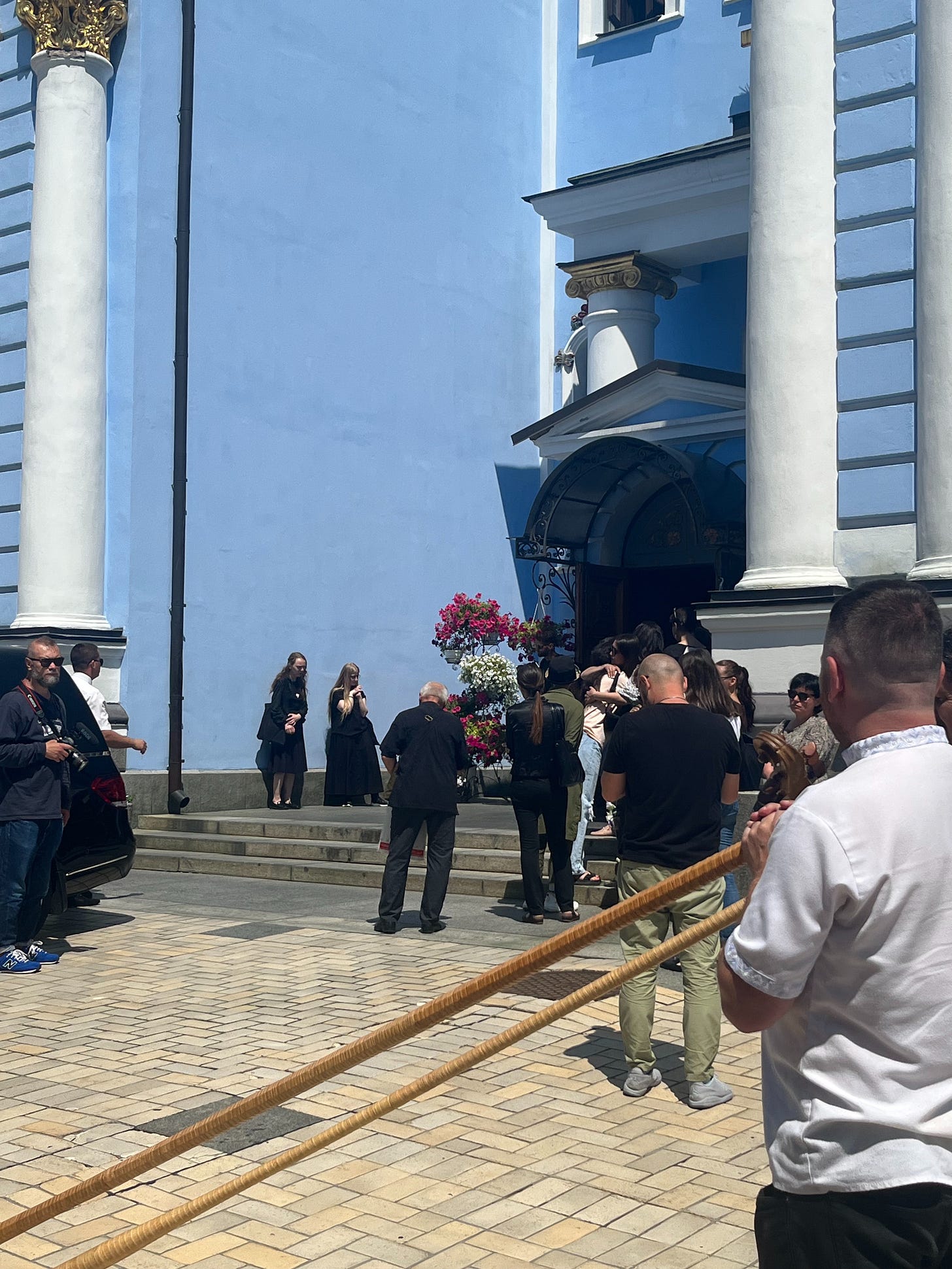Notes From Ukraine
On the surface, life goes on as normal far from the frontlines. But below, it is anything but.
During the recent NATO summit, Ukrainian President Voldymyr Zelensky tweeted on July 11 that the unwillingness of members to grant a timetable for his country's accession to the organization was "unprecedented and absurd." The Washington Post reported that the tweet nearly blew up a planned joint statement on Ukraine's future membership. In the end, nothing was changed in the final statement. On July 12, the summit in Vilnius ended with a promise for Ukraine to eventually join the organization, but no statement on how or when it would happen. (It's a nonstarter for Ukraine to join while they're at war; however, Ukrainians had hoped for a clearer roadmap for joining after.)
Having just returned from two weeks reporting in Ukraine (more to come) and talking to many people in Kyiv and Lviv, I understand the frustration of not getting a clear signal for a security guarantee that would make it significantly less likely that a Russian invasion happens again. (Many Ukrainians showed their frustration on social media.) While reasonable people can disagree over the wisdom of a timetable for membership, something like it would give Ukrainians hope for the future -- which is desperately missing in the present moment.
Ukrainians are brave and resilient in the face of indescribable evil. But there are many deaths -- military and civilian -- and countless more injured and traumatized. The best and brightest are dying. "Our best people are killed and will be killed because they do not stand aside," wrote the journalist Angela Kariakina on Facebook.
Meanwhile, much of the world is turning away. The attack on the Kakhovka Dam was met with a relatively muted response by international organizations. International media attention on Russian war crimes is waning. The journalist Natalia Guymenyuk recently said that the more attacks against civilians happen, the more these attacks get normalized. "I mention how reporters and editors – intrigued by 'a newer type of crime' – are getting bored as long as I mention victims of the missile attacks," she wrote in The Guardian.
While life mostly appears to be carrying on as normal, below the surface, three things stood out for me:



